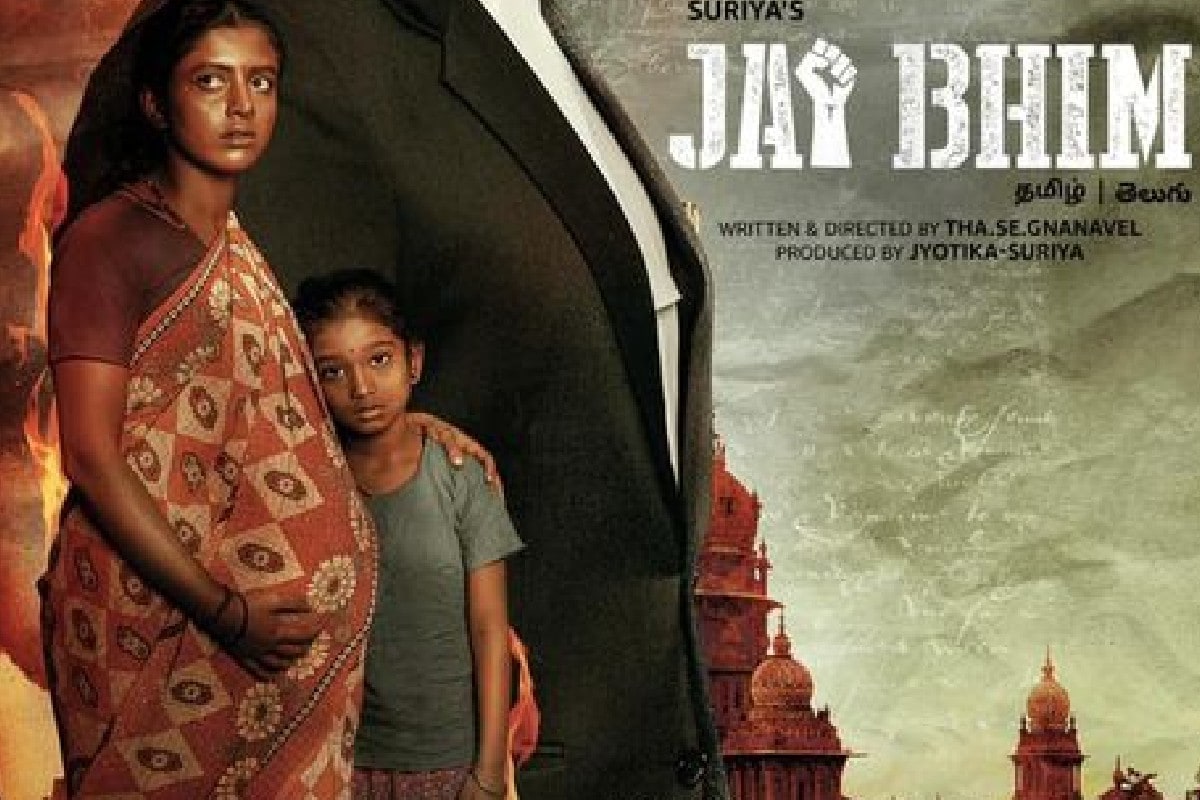
Jai Bhim (ஜெய்பீம், Tamil, 2021)
Director: T.J. Gnanavel
The Sivakumar family, by default, has come to be known as the first family of Kollywood. Of late, their production company has been churning out movies that dare to question the status quo in their state. With their clout and close association with the state's ruling party, DMK, they are often accused of pandering to the party's political agenda. Political analysts familiar with the Indian political scenarios are quick to highlight such glaring examples. (More of it later!)
 |
| The real Judge Chandru with his celluloid representation. |
 |
| Parvathi (portrayed as Sengani), a woman scorned by police brutality. |
Watching the film reminded me of the too many police lock-up custodial deaths that have happened in Malaysia. Much of the media hype surrounding many of these cases 'die' a natural death without anything concrete happening afterwards. The coroner here will accept the cause of death healthy male of early 30s as 'pulmonary oedema' as perfectly normal with no one kicking up dirt. Perhaps we need a firebrand lawyer like K Chandru here.
In 1993, a tribal lady was troubled after the police apprehended her husband and relatives for theft. They allegedly escaped detection and were at large. When she demanded to know what had happened to her husband, as she had witnessed him being tortured, she was given the run-around. No lawyers were willing to help her. Through the comrades of the Communist Party, she was introduced to lawyer Chandru. The lawyer petitioned for a habeas corpus writ at the courts.
As the story goes on, we can see how pressures from the top force the downline police officers to speed up the closure of cases by falsely fixing men from the tribal community. To get their conviction, the police beat them to pulp and creatively devised torture tactics to achieve their goals. Perhaps the mindset of the uniformed body is such that orders must be followed contributed to this. Blind obedience is expected from the subordinates, not the prick from their inner mind of mindfulness! The feudal mentality of subservience and not questioning the independence of the police need to be re-assessed.

This movie got a hail of praise from the Chief Minister, MK Stalin. Images of Karl Marx, Ambedkar and Periyar, and proud hoisting of 'hammer and sickle' red flags do not hide the ideology discussed in the film. If one were to scrutinise the story, there were some subtle changes in the name and caste of some characters. It may not be due to cinematographic licence, but perhaps to put forward some self-serving political agendas. The name of the brutal sub-inspector who led the brutality had been changed from Anthony (a Christian name) to Gurumurthy (suggestive of a Vanniyar caste), and the tribal group had been identified as Irular instead of Kurumbar. I wonder why?






